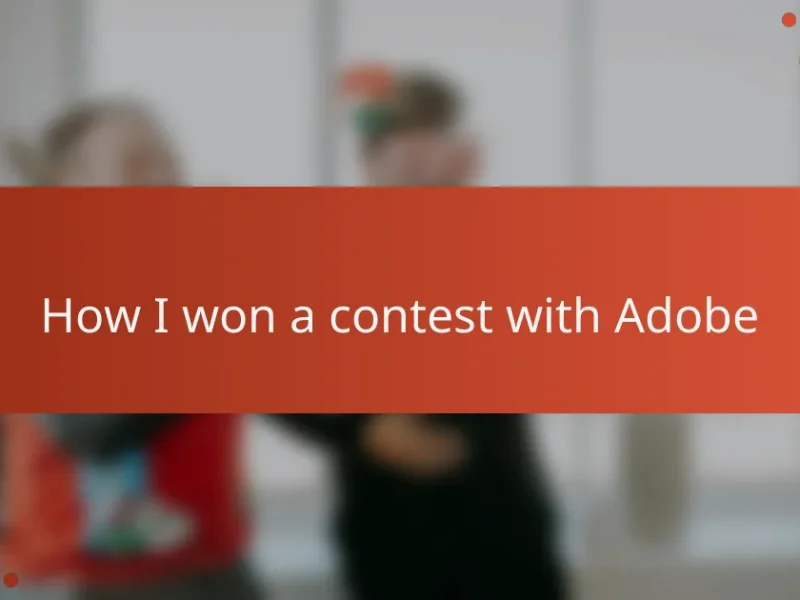Key takeaways
- Video contests emphasize creativity and personal connection, with participants sharing unique stories and talents.
- Talent show formats often involve suspense through elimination rounds and encourage audience interaction, enhancing the communal experience.
- Managing stage anxiety can be achieved through techniques like deep breathing, visualization, and viewing the audience as supportive friends.
- Resilience, authenticity, and adaptability are crucial lessons learned from participating in talent shows, highlighting personal growth through challenges.
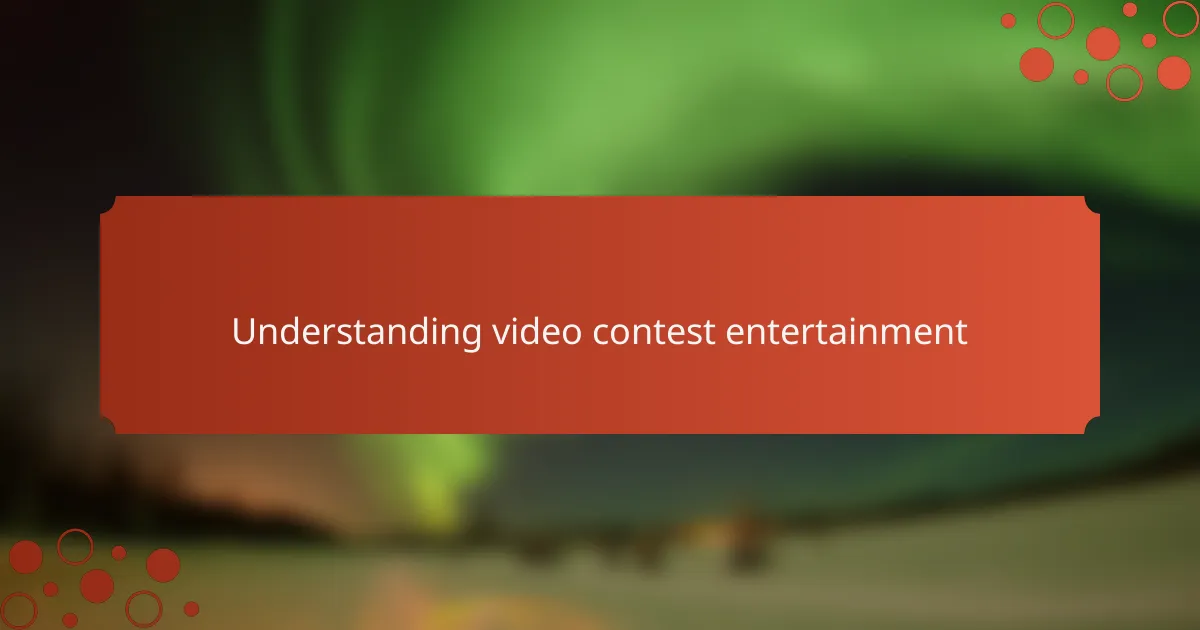
Understanding video contest entertainment
Video contest entertainment has always fascinated me because it combines creativity with competition in such a dynamic way. I remember feeling both excited and nervous watching participants submit their videos, each clip telling a unique story or showcasing a special talent. Have you ever wondered what goes through a contestant’s mind when their video goes live for everyone to see?
From my experience, video contests are not just about winning; they’re about sharing a piece of yourself with an audience that can be both anonymous and overwhelming. The thrill comes from knowing that your creativity can connect with people worldwide, sparking emotions you might never have expected. Isn’t it amazing how a short video can create such a powerful impression?
Understanding this form of entertainment means appreciating the effort behind each submission—the countless hours of planning, filming, and editing that many viewers might overlook. As someone who has participated in similar contests, I’ve learned that the journey often matters more than the outcome, making every moment of the process memorable and deeply personal.

Overview of talent shows formats
Talent shows come in all shapes and sizes, each with its own unique twist. Some focus on singing or dancing, while others open the floor to any skill you can think of—from magic tricks to stand-up comedy. I’ve always found it fascinating how these formats shape not just the competition but also the energy of the entire show.
One thing I’ve noticed is that many talent shows build suspense through elimination rounds, where contestants face judges or audience votes. This pacing keeps you on edge, constantly wondering who will make it through. Have you ever felt your heart race as names are announced? That moment of uncertainty adds a layer of excitement you don’t get anywhere else.
Another format I appreciate involves audience interaction through live voting or social media engagement. It makes the experience feel more communal, almost like you’re part of a big, supportive crowd cheering someone on. When I participated in a live talent show, this connection made the nerves more bearable — knowing people were rooting for me beyond just the judges’ scores.
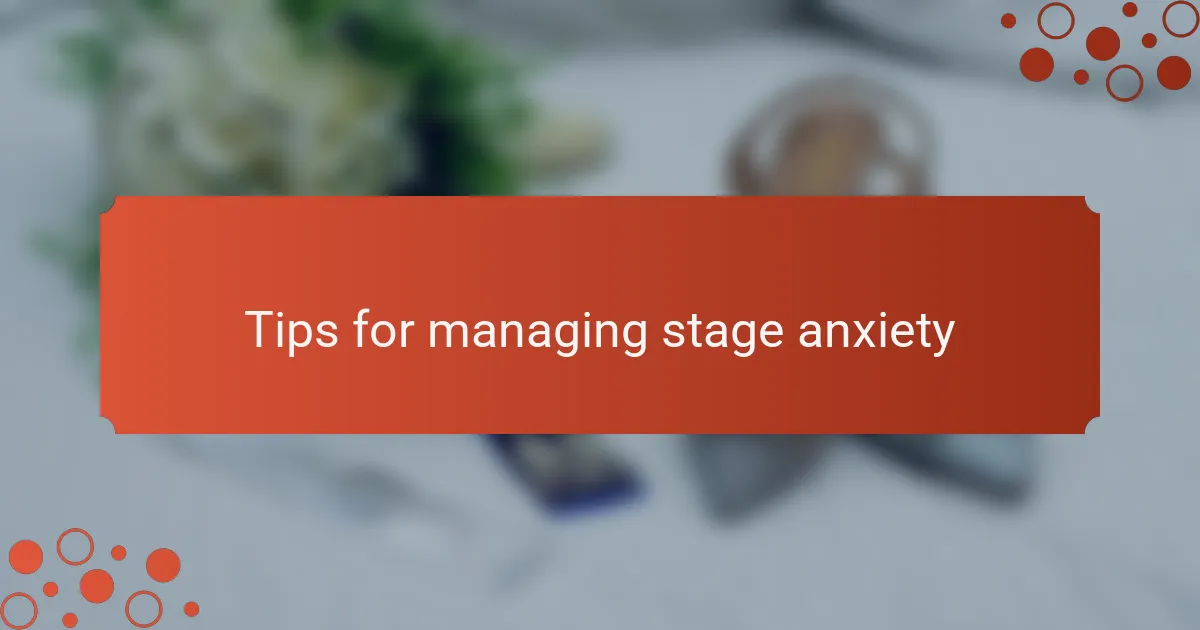
Tips for managing stage anxiety
Stage anxiety is something I’ve faced head-on during talent shows, and one trick that helped me was focusing on my breathing. Deep, slow breaths not only calm the nerves but also center your mind on the present moment. Have you tried counting your breaths before stepping on stage? It’s surprisingly grounding.
Another tip I found invaluable was visualizing a successful performance. I would close my eyes backstage and imagine the audience smiling, the applause ringing out, and myself feeling confident. This mental rehearsal turned the fear into excitement, transforming anxiety into energy.
Connecting with the audience also eased my nerves. Rather than seeing them as strangers, I’d picture them as friends who genuinely want to enjoy my act. Shifting my perspective this way made the stage feel less like a spotlight and more like a shared moment. Have you noticed how a simple mindset change can shift your whole experience?
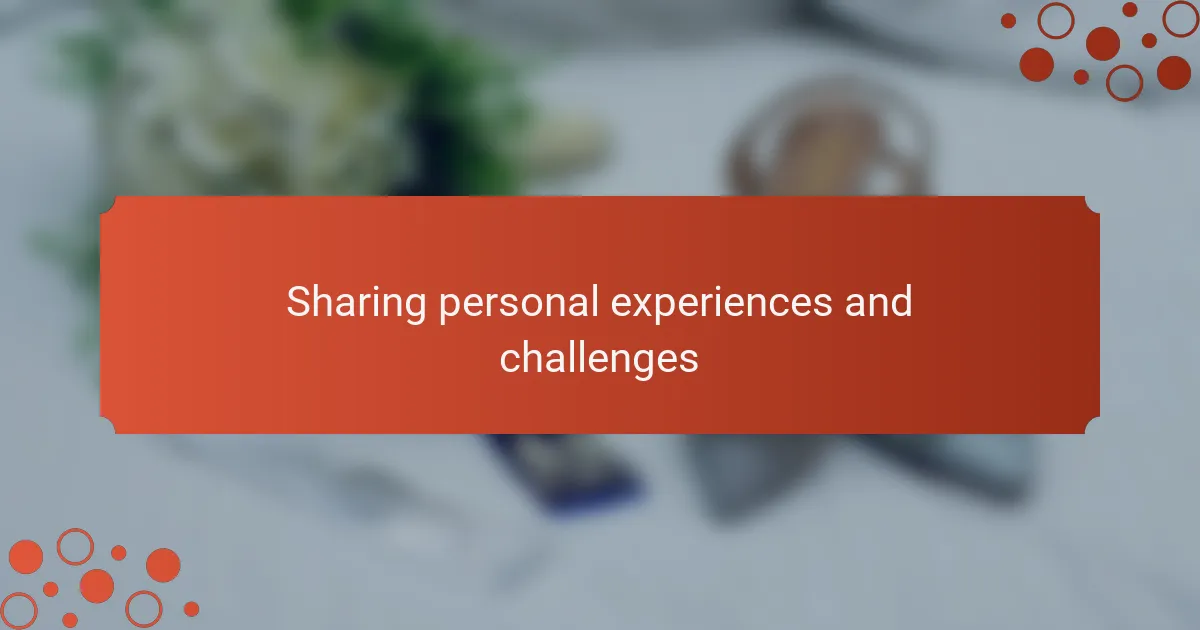
Sharing personal experiences and challenges
When I first stepped into a talent show, I quickly realized the challenges extended far beyond just performing. Balancing excitement with self-doubt often felt like walking a tightrope—I questioned if my talent was enough or if the judges and audience really connected with my act. Have you ever wondered how it feels when your hard work hangs in the balance of a few fleeting minutes on stage?
One moment that stands out was dealing with unexpected technical glitches right before my turn. Instead of panicking, I reminded myself that every challenge is part of the story I’m sharing, and embracing those imperfections made my performance more authentic. That experience taught me resilience and the importance of staying present—even when things don’t go as planned.
Sharing these personal hurdles has shown me that vulnerability is a strength in talent shows. When viewers see someone overcoming nerves, doubts, or setbacks, it creates a genuine connection that goes beyond flawless performances. Have you noticed how stories of struggle often resonate more deeply than polished perfection?
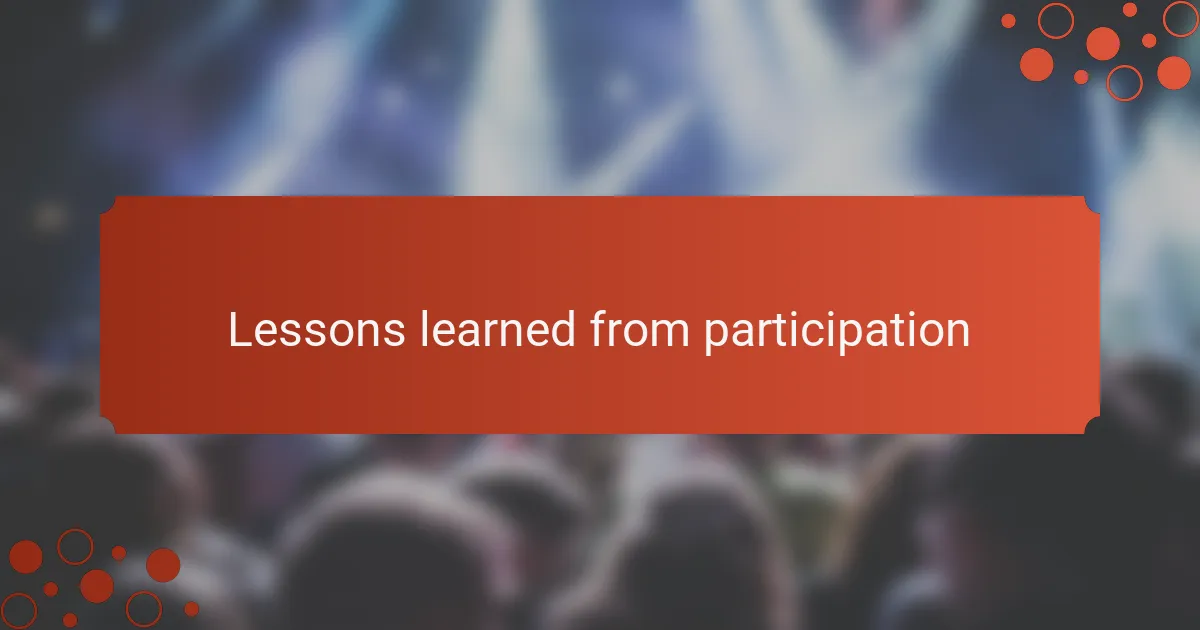
Lessons learned from participation
One of the most powerful lessons I learned from participating is the value of resilience. There were moments when I felt discouraged, especially if my performance didn’t go as perfectly as I imagined. But pushing through those setbacks taught me that growth happens outside the comfort zone—don’t you think failure sometimes makes success sweeter?
I also realized how crucial it is to embrace authenticity. Early on, I thought I needed to fit a certain mold or impress the judges with flashy moves. Over time, I understood that being true to myself—sharing my unique story—created a stronger bond with the audience. Have you ever noticed how genuine moments often captivate more than rehearsed ones?
Finally, the experience showed me the importance of preparation balanced with flexibility. While practicing gave me confidence, accepting that not everything can be controlled eased my anxiety. When unexpected challenges popped up, I learned to adapt rather than resist. Isn’t it amazing how that mindset shift can transform pressure into possibility?


